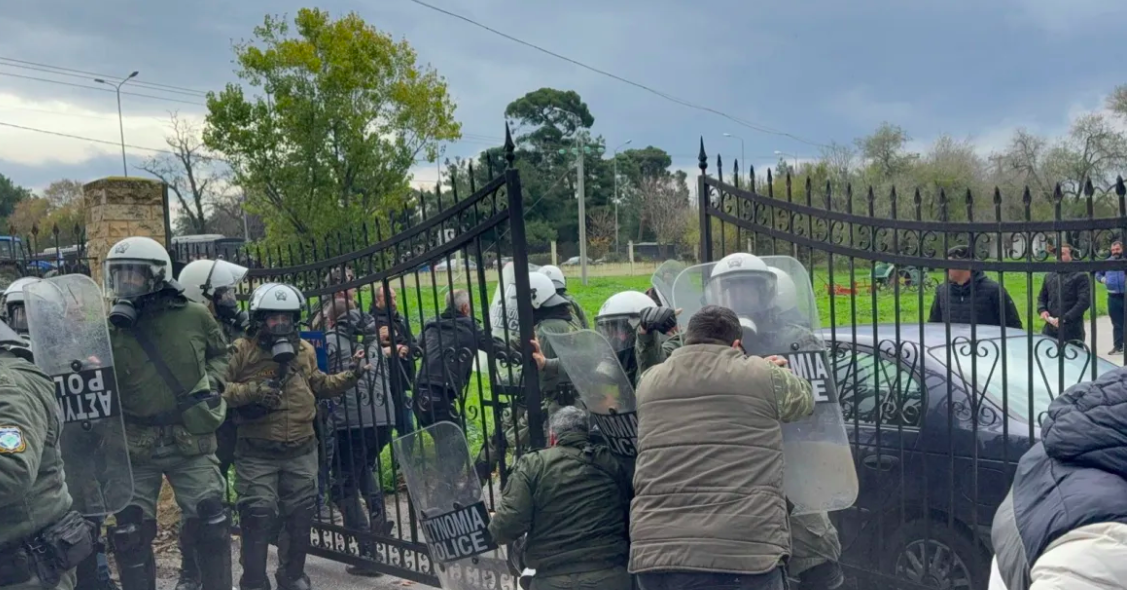The President of the Supreme Court, Ioanna Klapa, issued a statement responding to a post by Maria Karystianou concerning the investigative proceedings regarding the tragic railway accident in Tempi.
Ms. Klapa emphasized that institutions should not be subjected to ridicule and insult when addressing legal matters.
Her statement reads as follows:
Democracy Requires Respect for Institutions
The appointment of a Court of Appeals judge as an investigating magistrate in cases of exceptional importance is regulated by the Code of Criminal Procedure, specifically Article 28 of the previous Code and the equivalent provisions of Article 29 of the current Code, which was ratified by Law 4620/2019 and remains in effect.
The eligibility for appointing a Court of Appeals judge as an investigating magistrate is proposed by the appellate prosecutor, and the decision is made by the Plenary Assembly of the competent Court of Appeals, which convenes in council and makes a final ruling. If the decision is affirmative, the Plenary Assembly then proceeds to appoint, through a nominal vote, one of its members as the investigating magistrate, and if deemed necessary due to the case’s complexity, it may also appoint an assistant magistrate as well as a substitute magistrate. These individuals are chosen based on their ability to conduct and complete the investigation. In such cases, if an investigating magistrate at the trial court level has already been assigned, they must cease all investigative actions and transfer the case file to the newly appointed Court of Appeals investigating magistrate.
To date, numerous highly significant cases have been lawfully assigned to Court of Appeals investigating magistrates. Notable examples include:
- The investigation into terrorist organizations 17 November and ELA
- The Vatopedi Monastery scandal
- The structured bonds case
- The judicial corruption rings
- The Siemens bribery case
- The terrorism investigation
- The criminal organization case involving Golden Dawn, assigned by the Plenary Assembly of the Athens Court of Appeals
- The Zoniana case in Crete, assigned by the Plenary Assembly of the Crete Court of Appeals
- Most recently, the Tempi railway disaster case, assigned by the Plenary Assembly of the Larissa Court of Appeals
It is important to highlight that, until now, no institutional authority has ever questioned the legitimacy of this process. On the contrary, both defense attorneys and involved parties have consistently expressed confidence in entrusting such cases to high-ranking judicial officials with extensive experience and legal expertise.
Criticism of Judicial Decisions Must Be Institutional, Not Demeaning
Of course, disagreements regarding judicial rulings or legal actions can and should be expressed institutionally. In fact, the critique of judicial decisions is a fundamental element of democratic governance.
However, disagreements on legal interpretations cannot be expressed by anyone, for any reason, through mockery, threats, denigration, insults, or outright contempt for the institutions and the legal framework that defines how democracy operates. It is evident that undermining institutions poses a direct threat to democracy—especially now, fifty years after its restoration in Greece.
Regardless of the circumstances, a judge must remain bound only by the law and their conscience, safeguarded by the Constitution’s guarantees of functional and personal independence.
The President of the Supreme Court
Ioanna Klapa-Christodouléa
Ask me anything
Explore related questions





